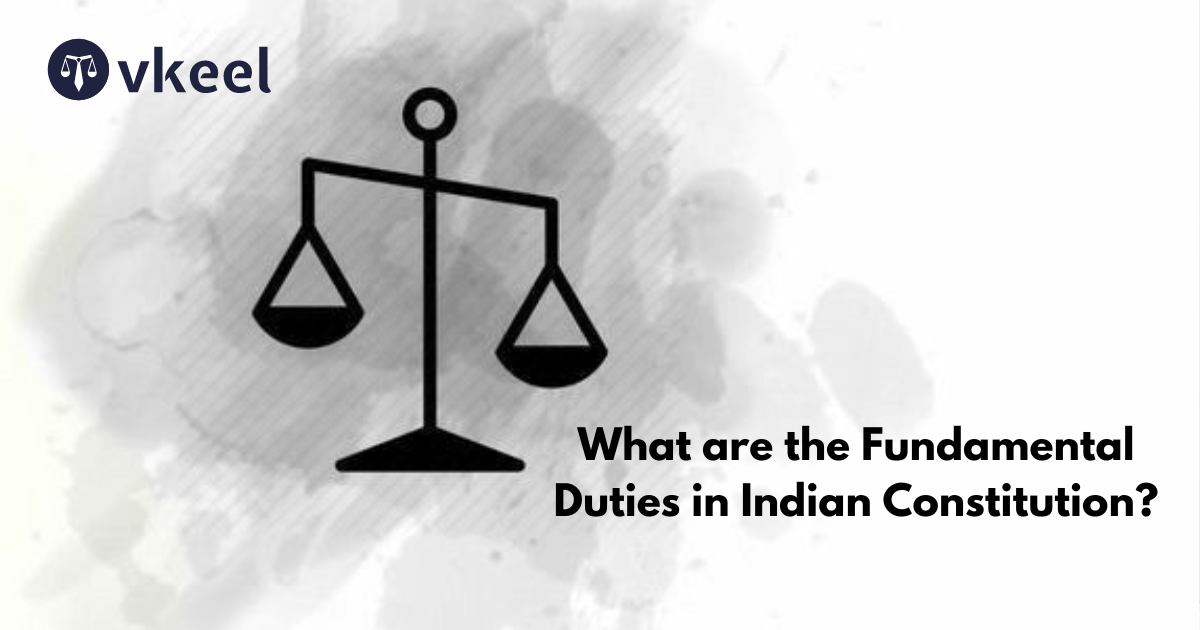What are Fundamental Duties in the Indian Constitution ?
By Joy Puri
Table of Contents
Introduction
The Indian Constitution which was adopted on January 26, 1950, is the fundamental branch of law of the country of India. It establishes the requisite framework and the features defining fundamental political principles, structures, procedures, powers, and duties of government institutions and other entities of the nation. It also entails the fundamental rights, directive principles, and duties of citizens of India.
The Constitution is known for its detailed and elaborate structure, and is thereby the lengthiest constitution, comprising a Preamble, 25 Parts with 395 Articles, and 12 Schedules.
Furthermore the document was drafted by the Constituent Assembly under the chairmanship of Dr. B.R. Ambedkar, and is inspired by various sources, including the British, American, Irish, and Canadian constitutions, although tailored to adapt with India’s unique socio-cultural environment thereof.
Key features of the Indian Constitution includes a federal structure with a strong central government, a parliamentary system, a blend of rigidity and flexibility through the amendable provisions, and a commitment to justice, liberty, equality, and fraternity in the nation.
Over the years by the time, it has been amended multiple times to address evolving political, social, and economic needs, ensuring its relevance in young India of the future.
Fundamental Duties in Indian Constitution
The Fundamental Duties of the citizens of India are opined in Part IV-A of the Indian Constitution under Article 51A of the constitution of India.
These duties were added by the 42nd Amendment Act in 1976. Followings are the fundamental duties of the Citizens of India:
- To abide by the Constitution and respect its ideals and institutions, the National Flag and the National Anthem.
- To cherish and follow the noble ideals which inspired our national struggle for freedom.
- To uphold and protect the sovereignty, unity, and integrity of India.
- To defend the country and render national service when called upon to do so.
- To promote harmony and the spirit of common brotherhood amongst all the people of India transcending religious, linguistic, and regional or sectional diversities; to renounce practices derogatory to the dignity of women.
- To value and preserve the rich heritage of our composite culture.
- To protect and improve the natural environment including forests, lakes, rivers, and wildlife, and to have compassion for living creatures.
- To develop the scientific temper, humanism, and the spirit of inquiry and reform.
- To safeguard public property and to abjure violence.
- To strive towards excellence in all spheres of individual and collective activity so that the nation constantly rises to higher levels of endeavor and achievement.
- Who is a parent or guardian to provide opportunities for education to his child or, as the case may be, ward between the age of six and fourteen years.
The aforementioned duties of the Indian Constitution states and reflects the true essence of the Indian Constitution.
Henceforth, they stipulate the common goals and the passion for achievement of the group goals of the country.
History of Fundamental Duties
The roots of the Fundamental Duties and their insertion into the Indian Constitution by the 42nd Amendment Act in 1976, inspired by the Constitution of the erstwhile Soviet Union.
This amendment and the addition thereof was made during the Emergency period under Prime Minister Indira Gandhi’s government and the ruling party being the Indian National Congress.
In furtherance to the aforesaid, the Swaran Singh Committee was constituted to review the Constitution of India and recommend the inclusion of these duties to remind citizens that rights come with responsibilities. In the first instance, ten duties were included; an eleventh duty was added by the 86th Amendment in 2002.
The Fundamental Duties in the Indian Constitution was established in Article 51A under Part IV-A of the Constitution. Unlike Fundamental Rights, which are justiciable, Fundamental Duties are non-justiciable in nature, which deciphers that their violation does not any invite legal action in the courts of law.
However, they serve as moral obligations for every citizen of India, to foster a sense of discipline and commitment toward the nation and the people of the country.
These duties targets to reinforce the importance of collective responsibility in preserving national integrity thereby promoting harmony, and ensuring the well-being of the country and its citizens in its pursuance thereof.
Conclusion
The fundamental duties which are entailed in the Indian Constitution are thereby the routes to the betterment of the country.
These fundamental duties if followed accordingly with a correct procedure and a passion for commitment towards justice can bring a positive impact not only on the country’s growth but also on the youth of the country.
Disclaimer:
The information provided in the article is for general informational purposes only, and is not intended to constitute legal advice or to be relied upon as a substitute for legal advice. Furthermore, any information contained in the article is not guaranteed to be current, complete or accurate. If you require legal advice or representation, you should contact an attorney or law firm directly. We are not responsible for any damages resulting from any reliance on the content of this website.










